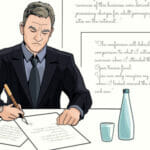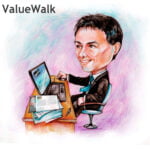Expert Intuition and Investing
May 6, 2014
By John Alberg and Michael Seckler
PDF Print Email Reminder Share
Previous 1 (current) 2 3 4 Next
Advisor Perspectives welcomes guest contributions. The views presented here do not necessarily represent those of Advisor Perspectives.
In our last article, we explored human behavioral biases and why investors often (mis)behave in a highly correlated manner that allows great investment opportunities to emerge. That topic is important for investors. Human nature – especially the way it causes people to focus on information other than companies’ operating results – is a big reason why opportunities exists to outperform via value-based investment strategies.
However, there are great investors who seem unmoved by these unproductive biases and instead exhibit deep expertise, as evidenced by long track records of superior performance. Where does expertise come from? How does an understanding of expertise inform how one should evaluate investment opportunities?
Where does expertise come from?
In his book Outliers, Malcolm Gladwell explores the enormous amount of practice required before expertise is attained. After looking at individuals who ascended to the top of their fields – including chess grandmasters, surgeons and composers – Gladwell concludes that a prerequisite for world-class performance is 10,000+ hours of practice. Across this amount of dedicated time, one can experience the wide range of situations, possibilities and outcomes necessary to become really good at something.
Gladwell’s book popularized concepts about expert intuition that were first introduced years ago by Herbert Simon. Simon’s research showed that experts, through dedicated effort in a specific field, could recognize the nature of new situations and quickly identify likely solutions. This stands in contrast to his observations of novices, who had a limited set of experiences and training and tended to waste time considering irrelevant information and weighing bad choices. Simon’s views are well-summarized by this often-cited quotation:
The situation has provided a cue; this cue has given the expert access to information stored in memory, and the information provides the answer. Intuition is nothing more and nothing less than recognition.1
From Simon’s perspective, answers appear through pattern recognition. An expert is one who has built a deep familiarity with the patterns of a given domain and thus has a robust body of work from which to reference when making decisions.
A miracle or an example of expertise?
Five years ago, Captain Chesley “Sully” Sullenberger successfully landed his disabled airplane on the Hudson River, saving all 155 people on board. His heroic landing provides an interesting example to consider when reflecting on the nature of expertise.
- “What is an Explanation of Behavior?” Psychological Science, May 1992.
PDF Print Email Reminder Share
Previous 1 (current) 2 3 4 Next
Remember, if you have a question or comment, send it to [email protected].











